Projects

21. November 2025
Proposed legislative changes could dangerously undermine key EU digital rights. The so-called Digital Omnibus agenda prioritizes competitiveness over safety, risking the dismantling of hard-won rights and oversight of dangerous technologies. These changes grant corporations and governments more access to our data while leaving us with less protection. This serves the financial interests of Big Tech, not citizens! This text is in Slovenian.

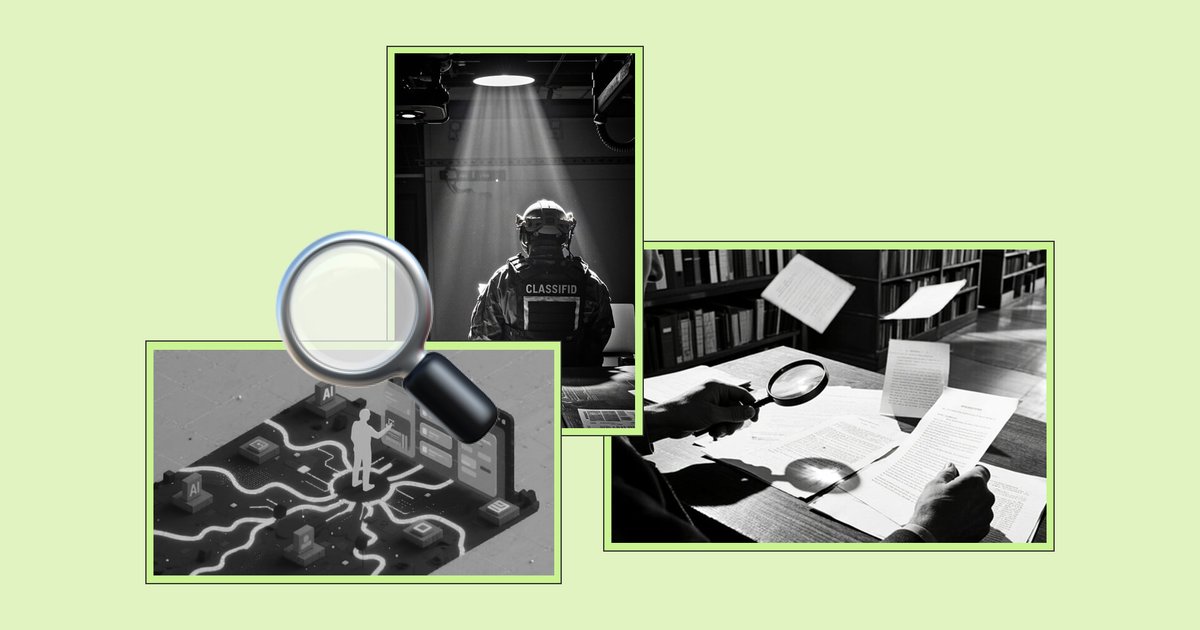
10. September 2025
In light of the exceptional progress in artificial intelligence technologies in recent years, we are seeing increasing interest in this technology among public sector employees. We therefore call on the Ministry of Digital Transformation and the Government to establish a publicly accessible register that will include key information about the AI systems used by public authorities.

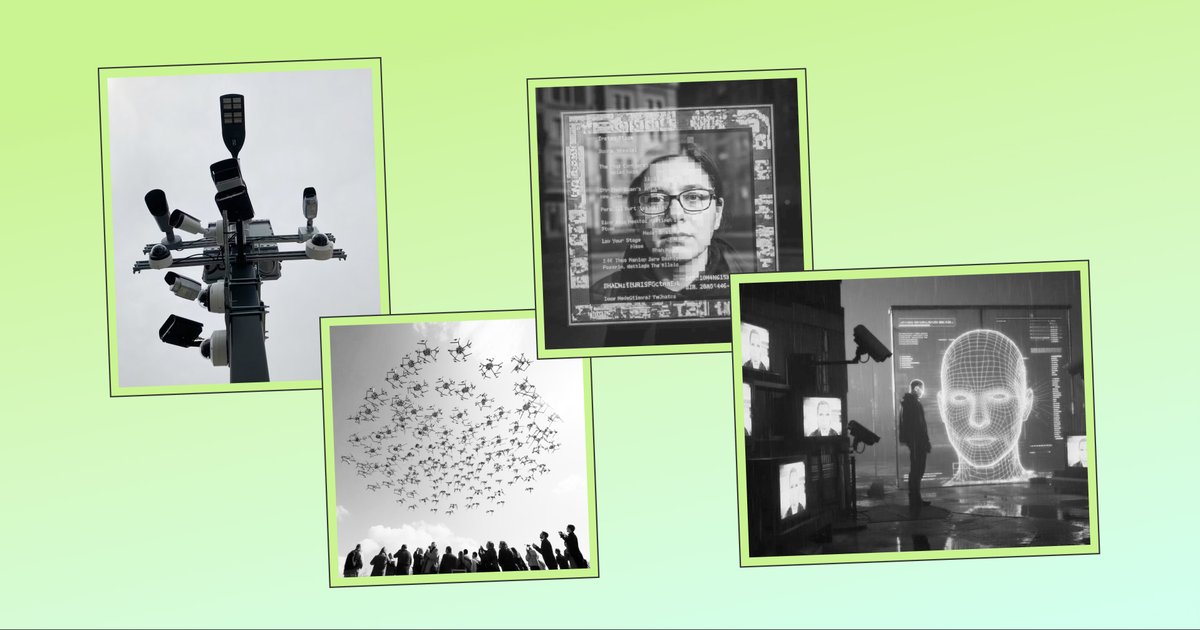
10. September 2025
As the European Artificial Intelligence Act takes effect, exceptions have been introduced that could undermine the protection of fundamental rights. That is why we prepared and addressed to decision-makers a set of recommendations aimed at preventing the weakening of democracy, democratic processes, and the rule of law.

Subscribe to Občasnik, our monthly newsletter
Each month, we curate a selection of our reflections, projects, public appearances, collaborations and recommendations for reading and action. Občasnik is concise yet substantial, effective yet unobtrusive — and always timely!

10. July 2025
Given the abundance of information about human rights violations carried out using technological surveillance, one would find it hard to believe that anyone could write positively about this topic. And yet, in the newspaper Delo, we recently came across an editorial by Mojca Pišek titled 'Why Chinese cameras don't bother me'. In our response, we explain why cameras do not represent freedom and security, but rather repression and surveillance. This text is in Slovenian.

4. July 2025
The proposed amendment to the Prevention of Money Laundering and Terrorist Financing Act limits access to the register of beneficial owners, thereby preventing public scrutiny of financial ties between companies and those in power. This text is in Slovenian
In cooperation with the Alliance for Integrity.
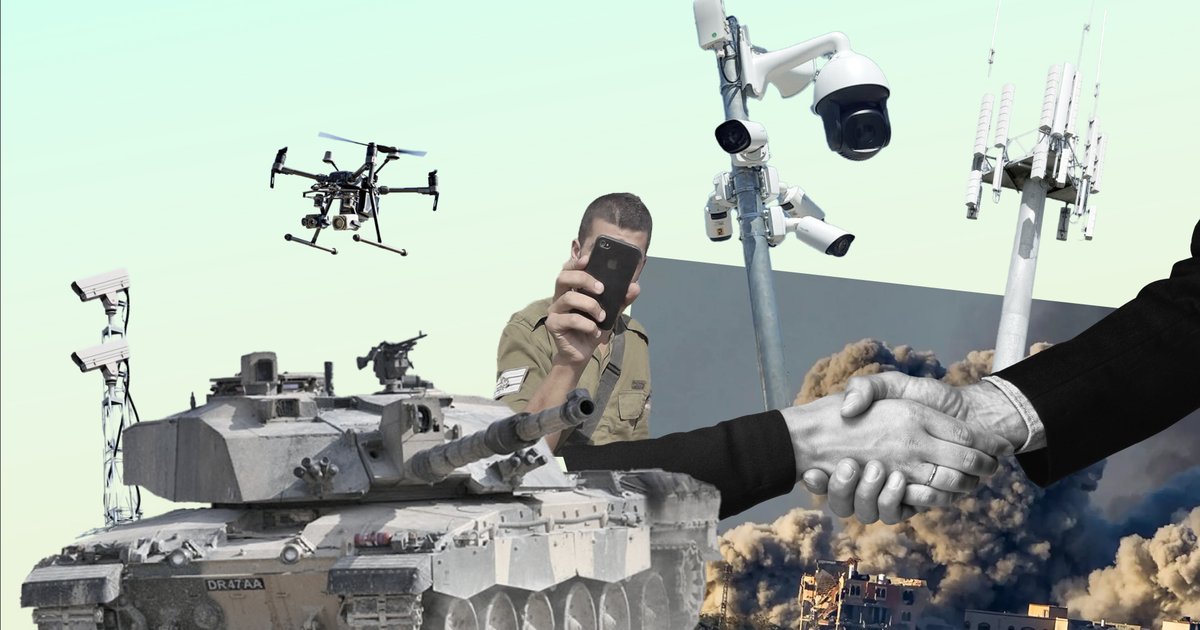
17. April 2025
Israel has since its formation subjected Palestinians to invasive surveillance. Technological advancements, mass data collection, and artificial intelligence have only strengthened this repressive power. Explore how facial recognition systems, spyware, and Israel’s data regime operate – and why holding on to hope still matters – in a piece based on a conversation between Maja and Shir Hever, coordinator of the military embargo campaign within the Boycott, Divestment, Sanctions movement.

16. January 2025
The AI Act still contains serious loopholes that open the door to abuse – particularly in the areas of biometric surveillance and migration. Together with the AI Act civil society coalition and the #ProtectNotSurveil coalition, we call on the European AI Board to ensure that the implementation of the legislation is based on the protection of the rights of all people with its upcoming guidelines!
For our continuous independent work we need your support!!
Donate

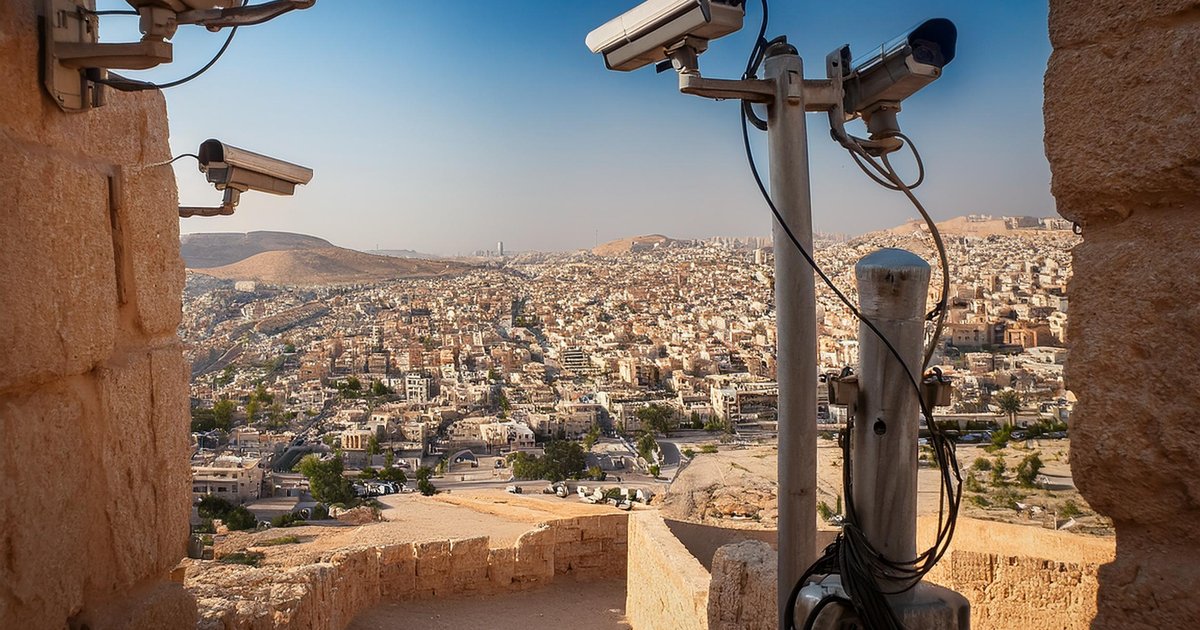
3. September 2024
The use of AI has played an important role in the surveillance, oppression and killings of Palestinians by Israel for many years, and has recently intensified. But the sole aim of the Israeli military-industrial complex is not to kill indiscriminately, but to use the occupied Palestinian territory as a testing ground for weapons and surveillance technologies that are later sold on the global market. We explore what this means for Palestinian fundamental rights and freedoms, the broader struggle against militarisation and the surveillance society. As A. Loewenstein pointed out: "What starts in Palestine never stays there."
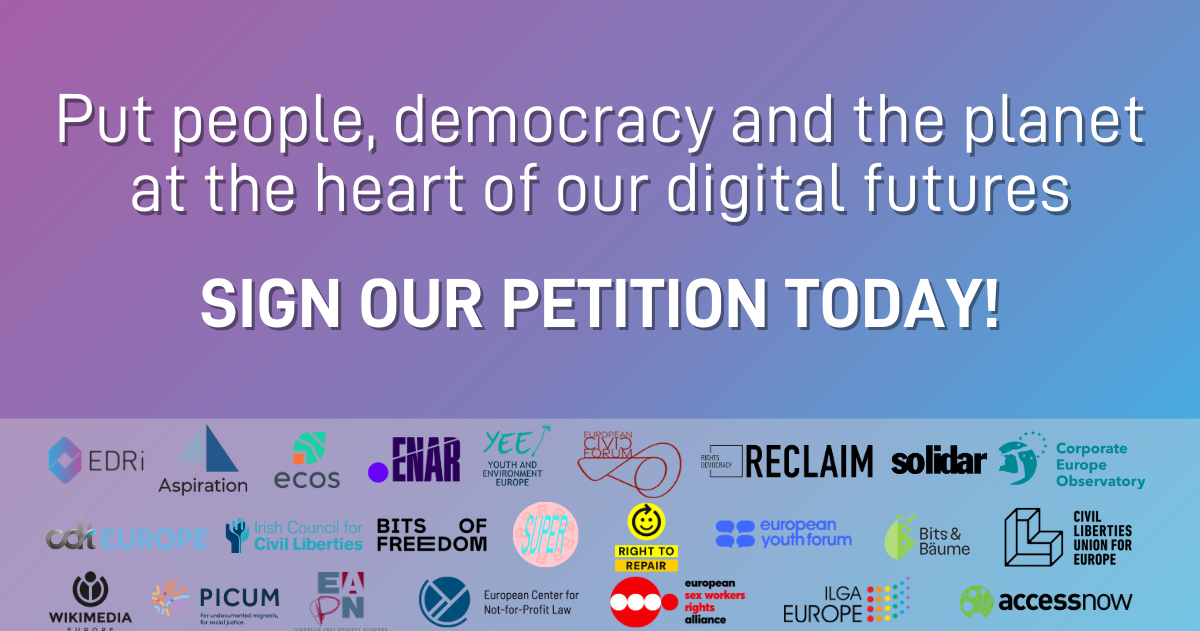
16. August 2024
We – as individuals, collectives, communities, and societies – have the agency, and responsibility to shape the future of a digitalised world. In 2024 and beyond, we call on you to pass laws that respect our vision articulated below, and reject the laws that steer us away from the future we want to build.


1. August 2024
On 1 August 2024, the long-awaited Artificial Intelligence (AI) Act enters into force, meaning that after years of negotiations, the AI Act is now an official EU law. As we move into this next phase of our work on artificial intelligence, we urge decision-makers to comply with five demands.

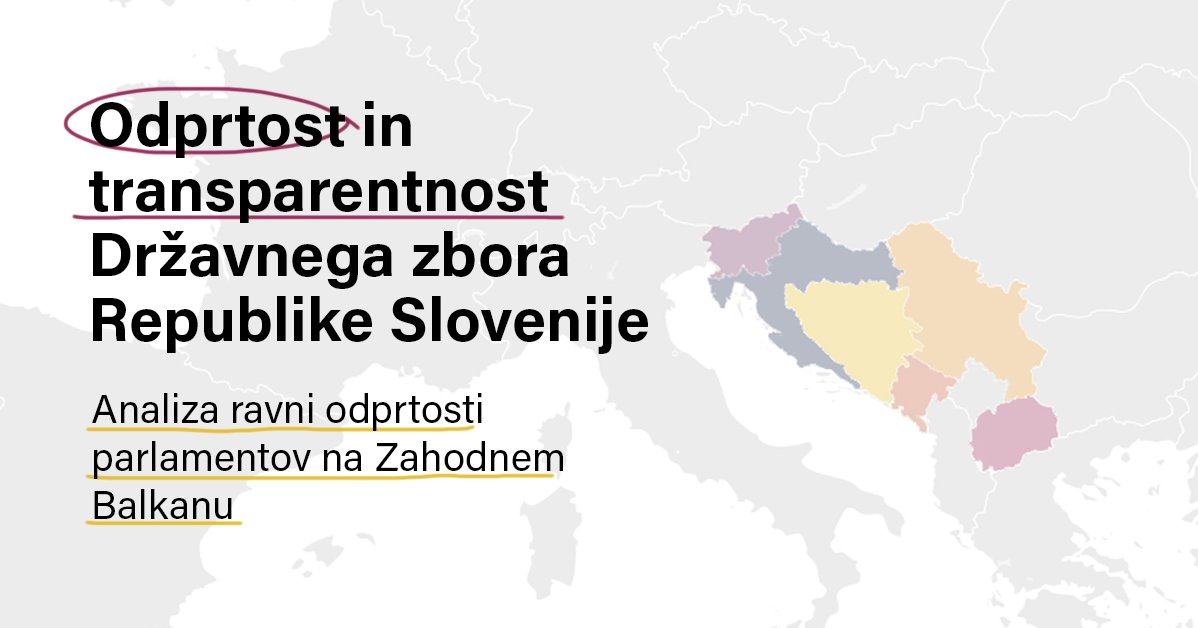
29. November 2023
As part of the international project Regional Openness Index, coordinated by the regional network of non-governmental organisations, Action SEE, we analysed the transparency of the National Assembly of the Republic of Slovenia. The analysis compared four factors: Transparency, accessibility, integrity of MPs and efficiency of the National Assembly. Once again, the National Assembly proved to be the second most open in the region. While this is encouraging, there is still room for improvement. In the previous period (2020), the biggest problem was the integrity of MPs. This time, efficiency received the lowest rating.

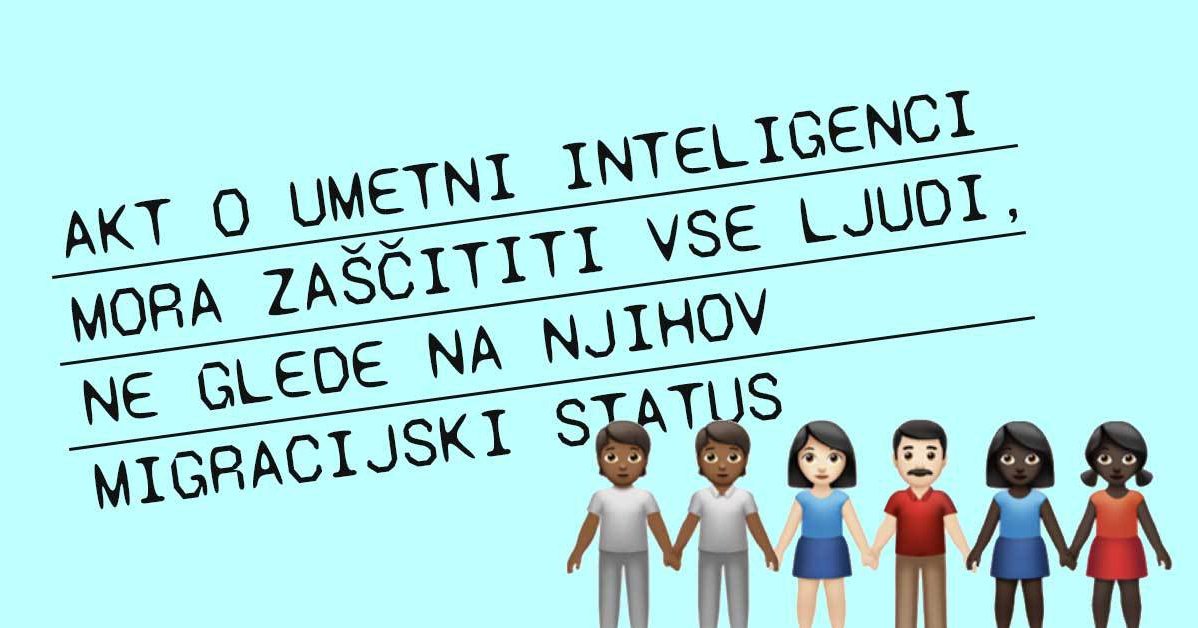
6. September 2023
With the support of co-signing organisations, we called on the Ministry of Digital Transformation of the Republic of Slovenia, other relevant ministries, the Government of the Republic of Slovenia and the National Assembly of the Republic of Slovenia to take an active role in protecting the rights of marginalised people, foreigners, migrants, refugees, asylum seekers and other persons with irregular migrant status. We informed the officials that we expect them to ensure respect for and protection of human rights.
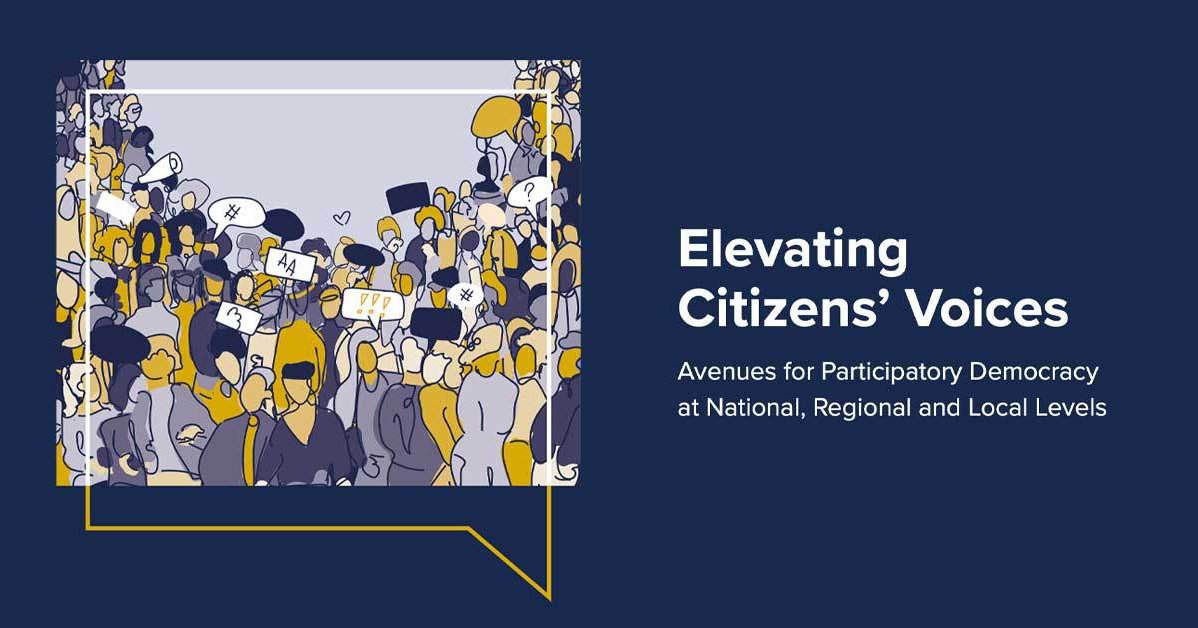
14. March 2023
This is a collection of texts produced in cooperation with the European Network of Political Foundations (ENOP) and the Assembly of European Regions (AER) and with the support of the EU. It discusses ways to solve problems facing modern societies: from climate change to gender inequality, with the help of citizens' assemblies. A comprehensive overview of good practices concludes with concrete recommendations for the implementation of new models of democratic deliberation.

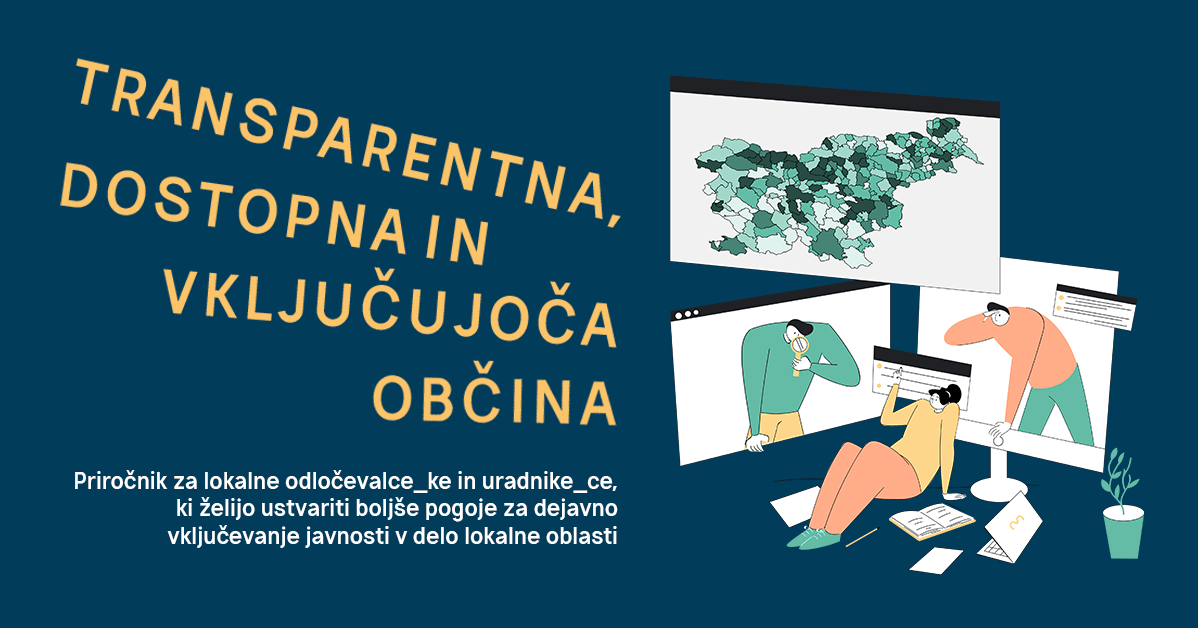
16. December 2022
This is a free handbook that was developed as part of the project "My Municipality: A Transparent and Open Local Government", supported by the ACF Program in Slovenia. The handbook is intended for local authorities and officials who aim to create better conditions for active public involvement in decision-making at the local level. It is divided into three chapters, namely Transparency, Accessibility, and Participation. Each chapter is further divided into subchapters that explore legal frameworks, potential solutions, guidelines, specific recommendations, and numerous examples of both domestic and international best practices. The handbook is freely available online and can serve as both an initial step and a practical tool for opening municipalities to their residents.
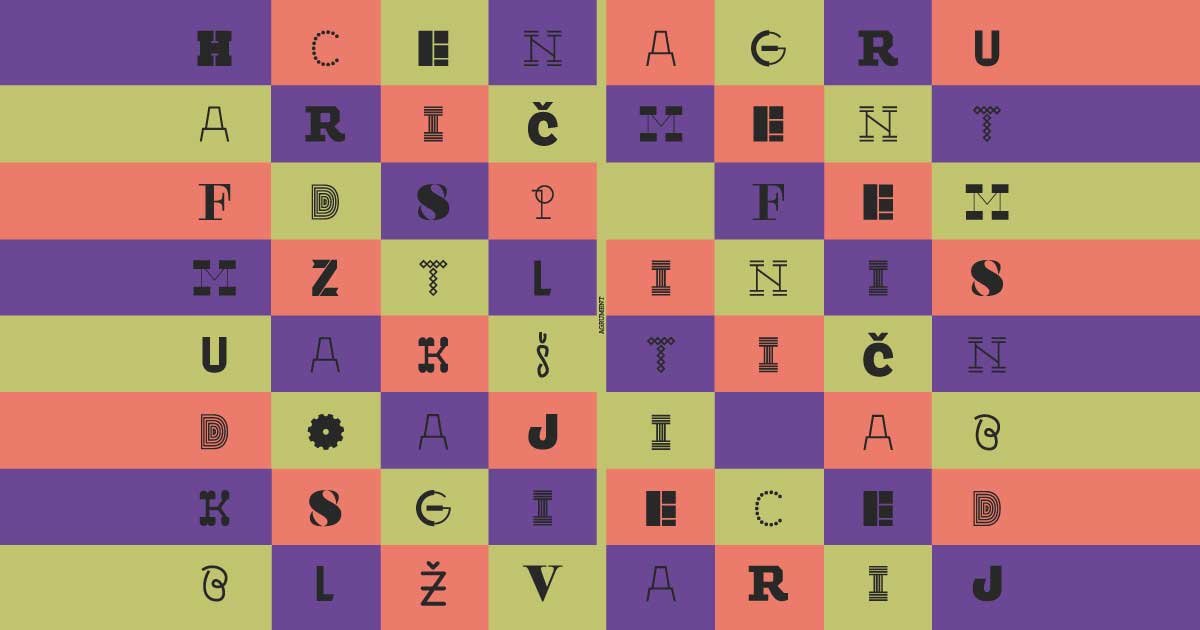
23. December 2021
After critically engaging with concepts of two fundamental disciplines, philosophy and theoretical psychoanalysis, as well as with the idea of freedom of speech, the new book in Agrument series tackles an engaged political movement, namely intersectional feminism. As befits the fourth book in the series, its conceptual framework is grounded in the fourth wave feminism, which goes beyond binary interpretations of identity, gender and sexuality. Instead, intersectional feminism addresses social and political identities as building blocks of discrimination and privilege. The Feminist abecedarium, which was published online for 25 consecutive Saturdays, has now been arranged into a book that you can order from our web store or download for free.
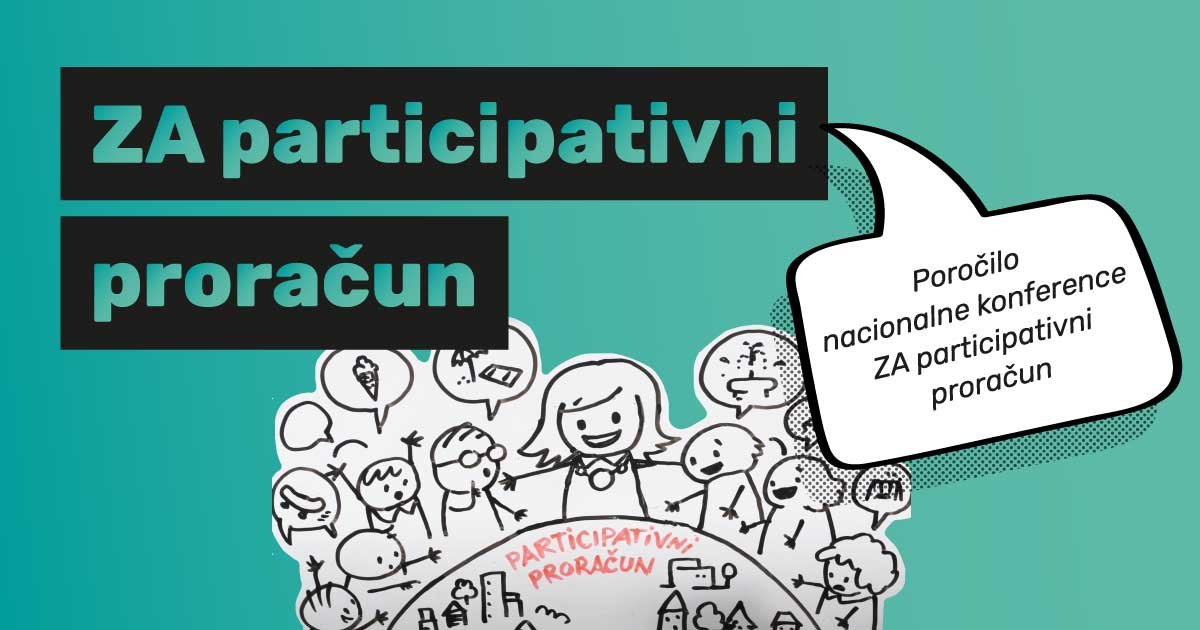
15. December 2021
We have prepared the report of the national conference FOR participatory budgeting, which took place in September 2021. The report serves as a handbook for municipalities implementing or wishing to implement participatory budgeting. On more than thirty pages, it contains useful guidelines, examples of good practice and concrete data that come in handy when implementing this democratic way of co-decision-making regarding the use of public funds.
